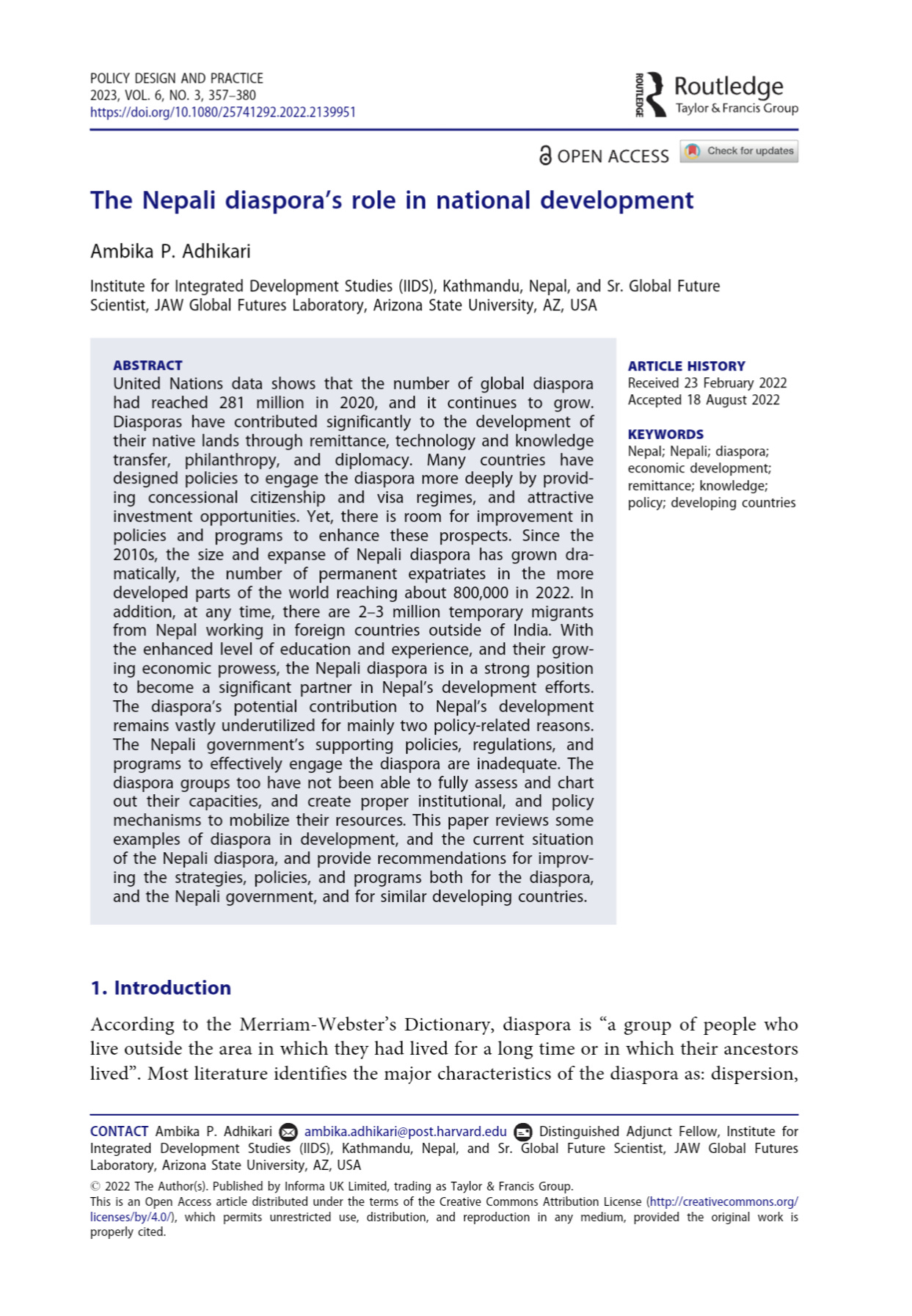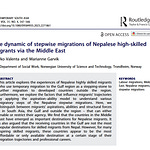Adhikari, A. P. (2022). The Nepali diaspora’s role in national development. Policy Design and Practice, 6(3), 357–380. https://doi.org/10.1080/25741292.2022.2139951Introduction
The Nepali Diaspora's Role in National Development is a research paper that examines the transformative potential of the Nepali diaspora in driving Nepal's socio-economic progress. The study highlights the diaspora's growing influence, particularly in economic and educational spheres, while addressing the systemic challenges that limit their contributions. By drawing on global examples and analyzing the Nepali context, the research provides a roadmap for leveraging diaspora engagement to foster national development.
Research Summary
This research offers a comprehensive exploration of the Nepali diaspora, which has expanded significantly over the years. With approximately 800,000 Nepalis settled in developed countries and an additional 2–3 million working abroad temporarily, the diaspora represents a vital resource for Nepal's development. The study emphasizes their increasing economic and educational capabilities, which position them as key stakeholders in Nepal's progress. However, the research identifies critical gaps in policy and institutional frameworks that hinder effective diaspora engagement.
The paper underscores the importance of remittances, which have historically been a lifeline for Nepal's economy, though recent trends show a decline in inflows. Beyond remittances, the research highlights other potential contributions, such as promoting international trade, facilitating foreign direct investment (FDI), and supporting higher education programs. It also discusses the role of returning diaspora members in creating startups and businesses, thereby stimulating domestic economic growth.
By examining successful diaspora engagement models from other countries, such as the African and Chinese diasporas, the research provides valuable insights for Nepal. It concludes with actionable recommendations for policymakers and diaspora organizations to foster collaboration and maximize the diaspora's impact on national development.
Key Takeaways
The Nepali diaspora has grown significantly, with millions working abroad and contributing to Nepal's economy through remittances and other means.
Despite their potential, the diaspora's contributions remain underutilized due to inadequate government policies and institutional support.
Strategic engagement and policy reforms are essential to unlock the diaspora's full potential in national development.
The research provides actionable recommendations for both the government and diaspora groups to foster collaboration and resource mobilization.
Global examples, such as the African and Chinese diasporas, offer valuable lessons for Nepal in leveraging its diaspora effectively.
The research highlights the critical role of remittances, noting that they have been a cornerstone of Nepal's economy, though inflows have shown a declining trend in recent years. It also emphasizes the importance of promoting international trade and facilitating foreign direct investment (FDI) as key areas where the diaspora can contribute.
One of the key insights is the need for a dual approach: while the government must create enabling policies, diaspora groups should also strengthen their institutional frameworks to contribute effectively. The research concludes with a call for a collaborative effort to bridge the gap between potential and action.
The research's reliance on credible sources, such as the World Bank and Pew Research Center, underscores its scholarly rigor and relevance.









